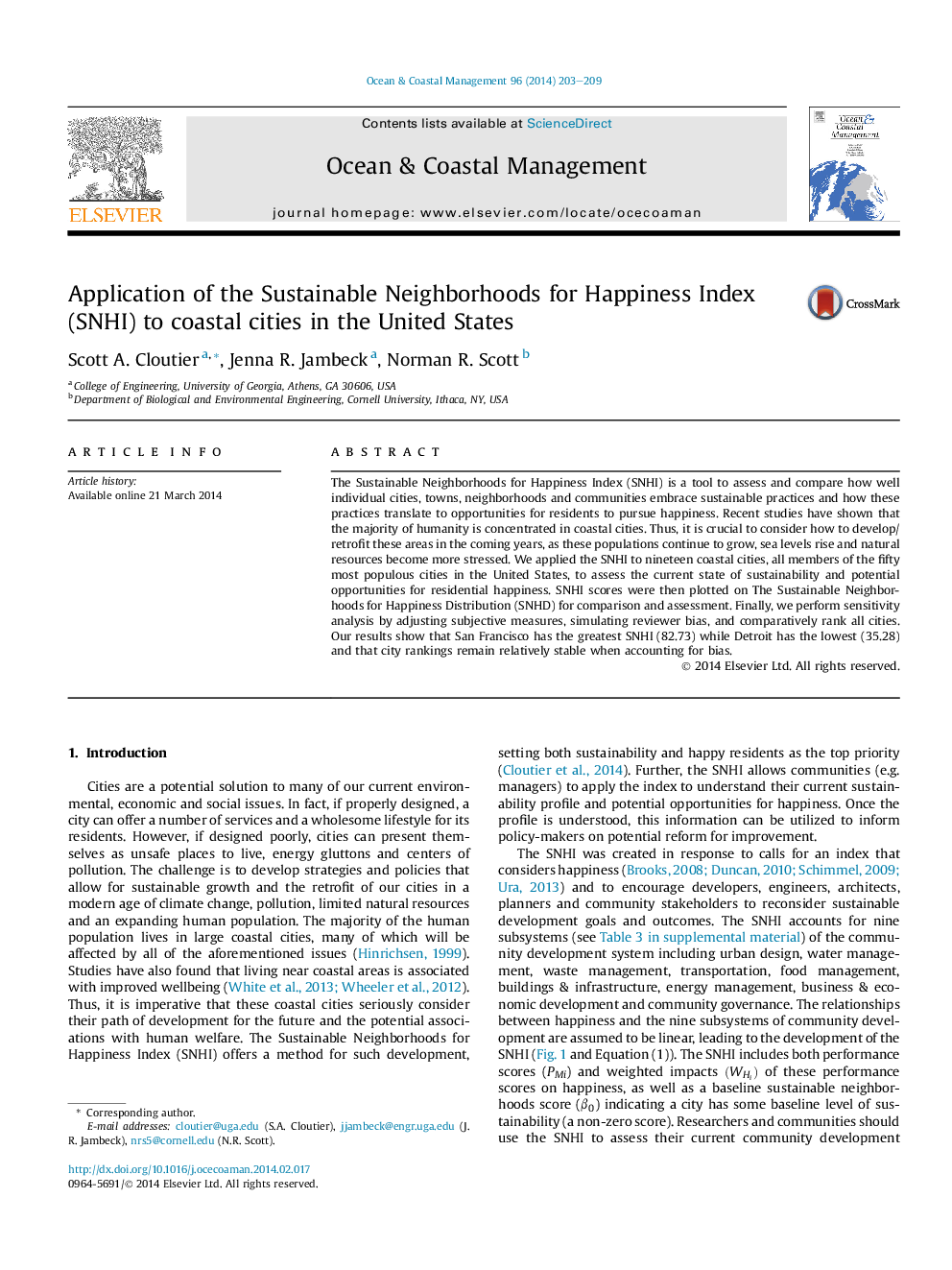| Article ID | Journal | Published Year | Pages | File Type |
|---|---|---|---|---|
| 1723697 | Ocean & Coastal Management | 2014 | 7 Pages |
•Context for the potential relationships between sustainable development and happiness are provided.•An index that simultaneously considers happiness and sustainable development was applied to many coastal US cities.•The US cities were plotted on the Sustainable Neighborhoods for Happiness Distribution (SNHD) for comparison with their peers.•Cities invested in sustainable development score highly on the SNHI indicating greater opportunity for residents to pursue their own happiness.
The Sustainable Neighborhoods for Happiness Index (SNHI) is a tool to assess and compare how well individual cities, towns, neighborhoods and communities embrace sustainable practices and how these practices translate to opportunities for residents to pursue happiness. Recent studies have shown that the majority of humanity is concentrated in coastal cities. Thus, it is crucial to consider how to develop/retrofit these areas in the coming years, as these populations continue to grow, sea levels rise and natural resources become more stressed. We applied the SNHI to nineteen coastal cities, all members of the fifty most populous cities in the United States, to assess the current state of sustainability and potential opportunities for residential happiness. SNHI scores were then plotted on The Sustainable Neighborhoods for Happiness Distribution (SNHD) for comparison and assessment. Finally, we perform sensitivity analysis by adjusting subjective measures, simulating reviewer bias, and comparatively rank all cities. Our results show that San Francisco has the greatest SNHI (82.73) while Detroit has the lowest (35.28) and that city rankings remain relatively stable when accounting for bias.
